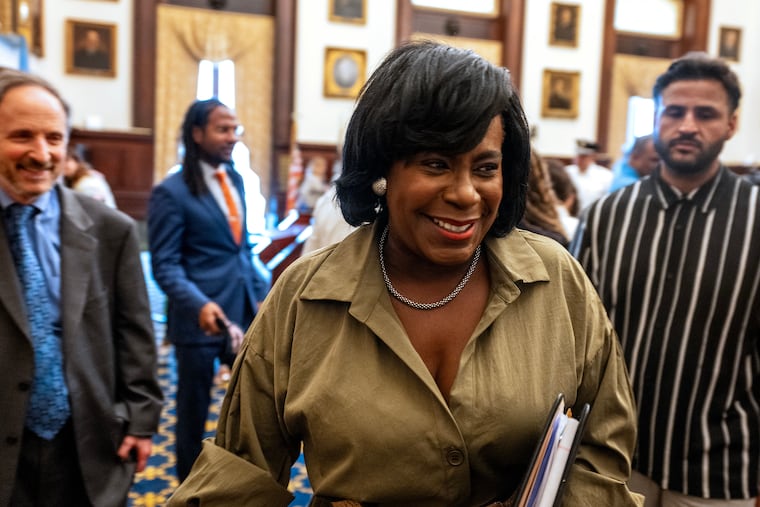Philadelphia officials prepare to take legal action if city funding is jeopardized by Trump’s sanctuary city order.
City officials in Philadelphia are prepared to take legal action in response to federal efforts that may label the city as a “sanctuary jurisdiction,” following a new executive order signed by President Donald Trump. This development comes amid rising tensions over immigration policies at the national level.
On Tuesday, City Solicitor Renee Garcia presented the Parker administration’s position during a City Council budget hearing, articulating the city’s readiness to challenge any designation that would result in a loss of federal funding. The executive order, enacted on April 28, aims to create a list of jurisdictions that the Trump administration believes undermine federal immigration laws. However, the specific criteria for designating these jurisdictions remain undisclosed, leaving cities like Philadelphia uncertain about their standing.
According to the executive order, jurisdictions identified as sanctuary cities will be contacted regarding their status. If they maintain policies considered to be sanctuary in nature, they risk facing immediate cuts to federal funding and potential legal action. Philadelphia, which received approximately .2 billion in federal funding for the fiscal year 2024—primarily allocated to health and social services—stands to be significantly impacted by such moves.
Garcia expressed confidence in the city’s legal grounding, citing a previous court ruling that affirmed Philadelphia’s right to sanctuary policies against federal attempts to cut funding. This legal precedent characterizes Philadelphia as a “welcoming city,” a term some officials prefer as it more accurately reflects the city’s stance on immigration rather than labeling it as one that harbors undocumented individuals.
The Parker administration’s commitment to defending Philadelphia’s immigrant communities was echoed by District Attorney Larry Krasner and Chief Defender Keisha Hudson during the hearing. Krasner, known for his vocal opposition to Trump’s policies, indicated that the city would be ready to act if federal authorities attempted to unlawfully enforce immigration regulations within Philadelphia.
Amid this backdrop, Attorney General Pam Bondi is anticipated to send notifications to sanctuary jurisdictions over the next month, making it imperative for city officials to closely monitor these developments. Garcia also emphasized that Philadelphia does not comply with Immigration and Customs Enforcement (ICE) detainer requests unless accompanied by judicial warrants, a policy established under former Mayor Jim Kenney’s 2016 executive order.
The situation escalated further during the budget hearing when a recent incident involving a police officer’s interaction with federal immigration authorities was discussed. The discussion led to conflicting views between Garcia and Hudson regarding whether the individual involved had been detained or willingly walked into ICE custody.
As the situation develops, Mayor Cherelle L. Parker maintains a cautious stance, focusing on her agenda while reaffirming the city’s compliance with established policies. Garcia concluded the hearing by asserting that the courts have historically protected the rule of law, indicating optimism for Philadelphia’s legal position should it face threats from the federal government.
As debates around immigration policy continue to unfold across the United States, Philadelphia’s actions may serve as a significant battleground in the ongoing discourse regarding sanctuary cities and their role in the national landscape.







